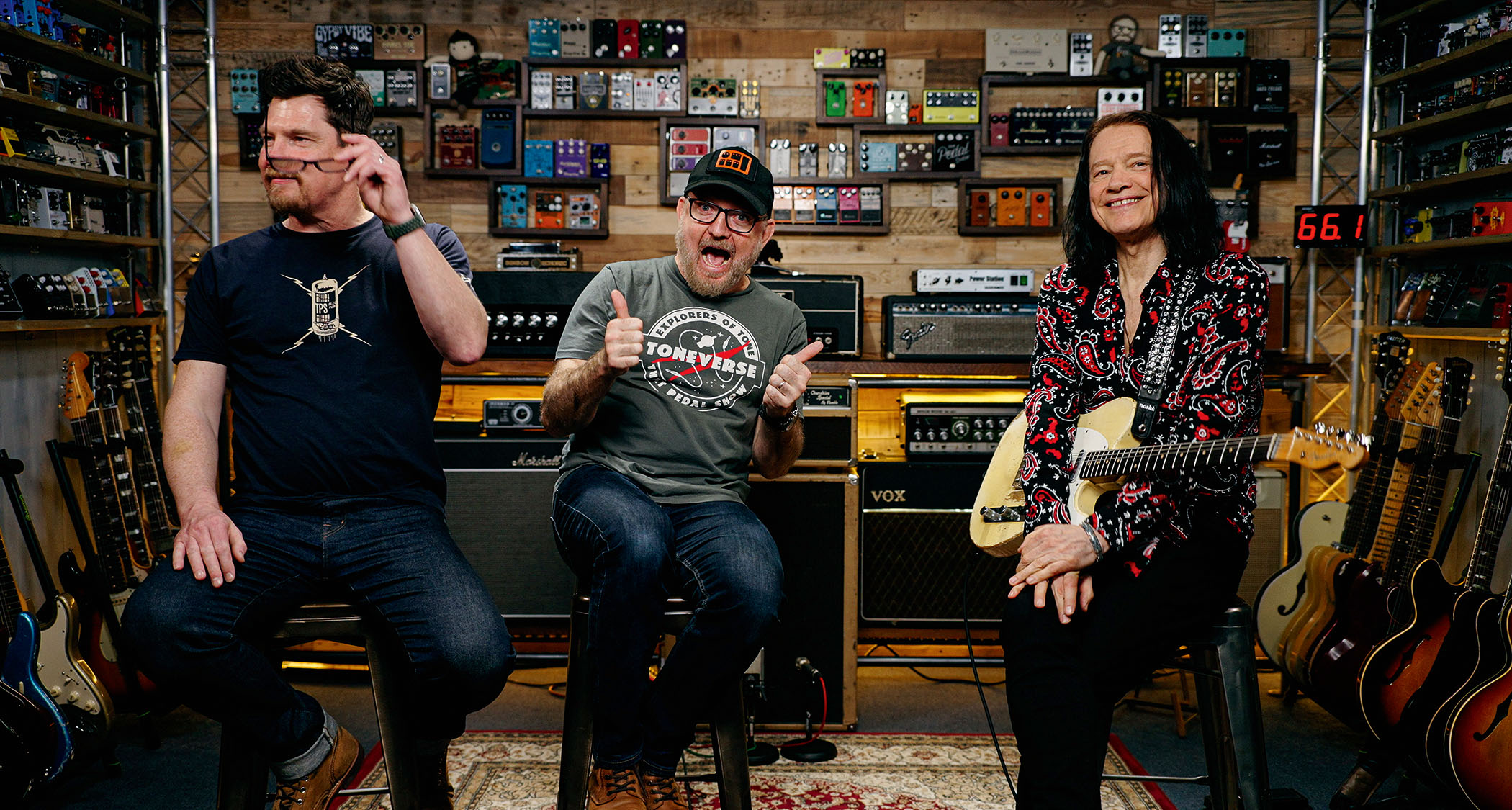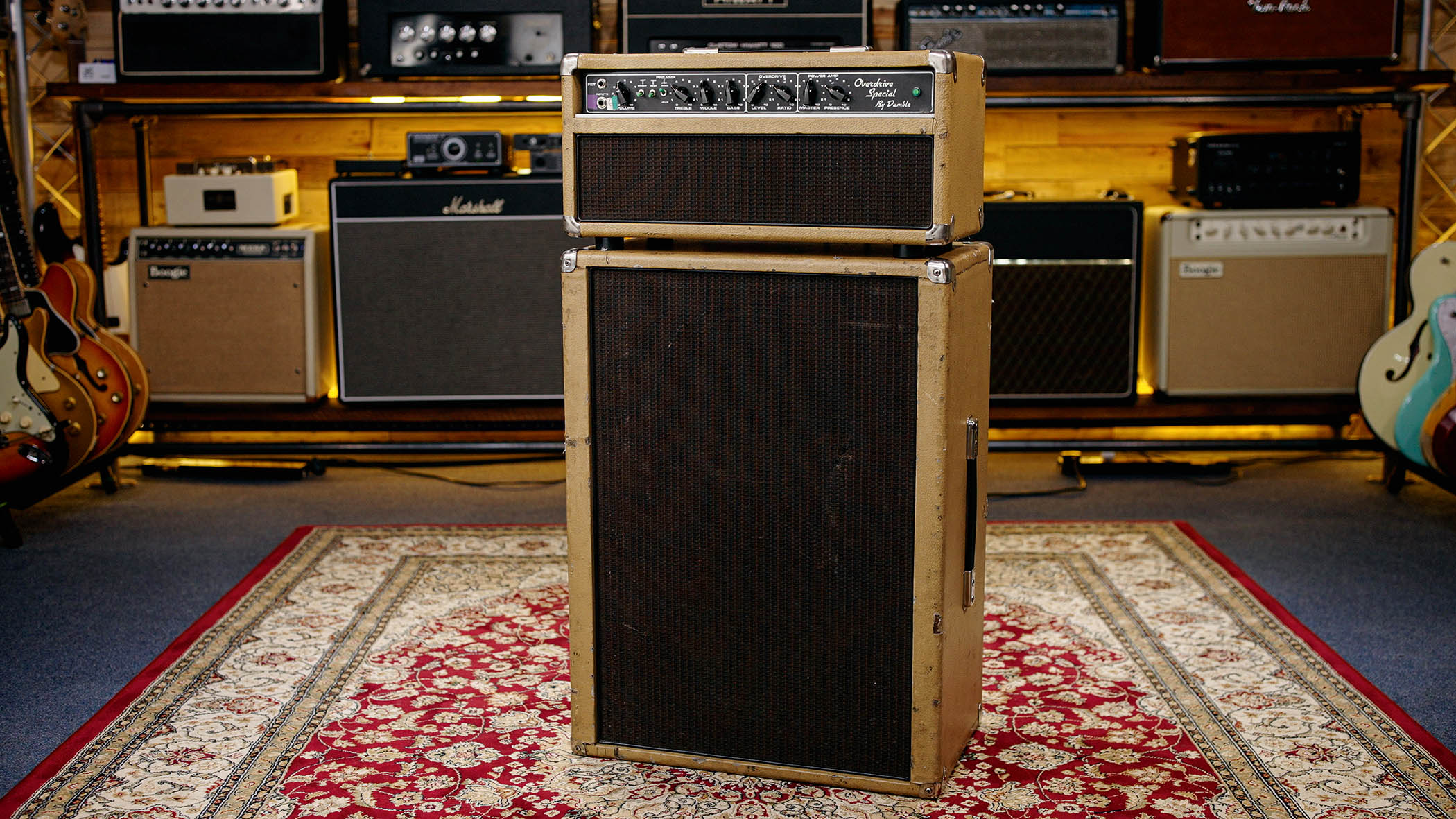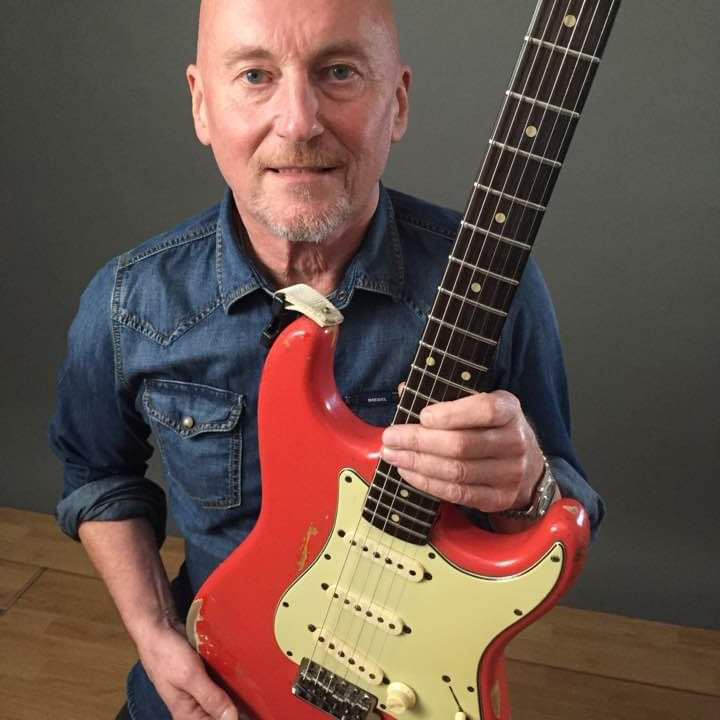“It is without doubt the most exciting, inspiring and moving guitar amp I have ever heard or played”: When That Pedal Show got their hands on an iconic Dumble, it changed everything they thought they knew about great tone
When you play the best guitar amp of your life but know you can never own it, how do you move on? We speak to Mick Taylor and Daniel Steinhardt of That Pedal Show about their tussle with Robben Ford’s Dumble

Just as beauty is in the eye of the beholder, so great amp tone surely resides in the ear of the listener. Peruse your record collection, witness a stonking gig, or play an amazing piece of equipment and you’ll know it’s true.
One such epiphanal moment for me was hearing Robben Ford’s album, Talk To Your Daughter. I recall the exact moment I slipped the tape the record company had sent me into the slot of my car’s cassette deck and cranked it up. Bloody hell!
Mick Taylor and Daniel Steinhardt recently had Robben, and the very Dumble Overdrive Special that made those iconic tones, on That Pedal Show. The two were clearly in awe of the guitarist but also of his amp. So I wondered, exactly what was it that made this amp so special?
“It’s impossible to play through it and not feel the weight of its iconic status,” begins Dan. “I’ve heard it on so many amazing albums and seen Robben play it live on numerous occasions, so I definitely had expectations.
“What I was not expecting was what it delivered with me at the helm. It wasn’t about hearing a legendary Dumble amplifier, it was about hearing me. The good stuff and the bad. This amp just laid me bare for all to hear. It’s the most demanding and rewarding amplifier I have ever played. A truly singular experience.”
Mick agrees: “Totally! I have never heard or played an amp that’s so open harmonically and unbelievably responsive to touch and dynamics. Clean, distorted or on the edge, every note is full of harmonics and information. And whether it was an old Strat, Lester, 335 or anything else, it’s the most moving I’ve heard each guitar sound.”
And how did it make the pair feel about their own hardly shabby Matchless and Two-Rock setups?
All the latest guitar news, interviews, lessons, reviews, deals and more, direct to your inbox!
My Matchless was my dream amp and I adore it. However, after playing Mick’s Two-Rock TS1 I’ve had it in mind that a Dumble-type amplifier may be in my future
Dan Steinhardt
“My Matchless was my dream amp and I adore it,” stresses Dan. “However, after playing Mick’s Two-Rock TS1 I’ve had it in mind that a Dumble-type amplifier may be in my future. Playing Robben’s just confirmed it for me. I recently tried an amp by a company called Amplified Nation and am seriously impressed. So even a flavour of it is worth pursuing.”
“For me, it felt like the ultimate version of a response I’ve been chasing for years,” states Mick. “Perhaps like driving a race-prepped 911 RS when your daily driver is a road-legal Carrera 4. Just as I’ll never own a real ’Burst, so I’ll never own a real Dumble. But we get as close as we can, then try to shift the focus to actually saying something worthwhile with our own equipment.”

In hindsight, was there even a hint that the two might have been slightly starstruck by its provenance?
“One of the benefits of doing That Pedal Show is that we’ve got to play through some extraordinary gear,” says Dan. “So we’ve become quite good at being pragmatic about these things. That being said, how could you not be influenced by the tones this amp has produced? That’s why we employed a couple of other great players so it wasn’t just Mick and myself and our little echo chamber.”
You can watch every YouTube video on amps and pedals, but you won’t know what’s right for you until you play through them and see if there’s a connection
Dan Steinhardt
“Obviously one can’t remove the conscious and unconscious biases,” Mick concurs, “most obviously the reverence for Mr Dumble, and Robben’s status as a player. But the amp actually ended up being here for a few weeks and Robben graciously gave us the okay to play it more, which, of course, I did well beyond the honeymoon period.
“In that time, my opinion of it grew and grew. It is without doubt the most exciting, inspiring and moving guitar amp I have ever heard or played.”
So what is great tone?
“Connection,” Dan exclaims. “Great tone is the vehicle that enables you to connect and express something through your instrument. Great tone can be found anywhere. It doesn’t need to be expensive. But does it enable you to connect with your instrument? Does it lead you to express something real to you? If so, that’s tone!”
Guitar tone is not guitar sound. 'Sound’ is gain and EQ and transients and all the stuff we talk about as gear nerds. ‘Tone’ is more complex, more contextual
Mick Taylor
“Guitar tone is not guitar sound,” Mick contests. “‘Sound’ is something you hear with your ears and then however your brain processes it. ‘Sound’ is gain and EQ and transients and all the stuff we talk about as gear nerds. ‘Tone’ is more complex, more contextual, and it requires all of your senses. It’s all the parts of ‘sound’ plus two other essential elements.
“First is some appreciable volume, loud enough that the amp’s speaker(s) and the guitar develop a physical relationship so that complexity in harmonics can develop between the two. Without volume, you only have sound. Secondly, and way above everything else, is what’s being said, playing-wise. You have to be meaning it for there to be any tone. If not, you’re back to ‘sound’.”
Robben said that in hindsight his Dumble is actually too powerful for recording. Dan, you use a 30-watt Matchless, and Mick, you prefer high-powered Two-Rocks.
“Context is everything,” stresses Dan. “Go and see a band like Idles and you’ll see why they need a bunch of 100-watt amps. But if I wheel in our old Hiwatt to the local pub and crank it, I would fully expect to be given my marching orders. But I’ve done gigs where the Matchless’s 30 watts simply wasn’t enough, and others where I’ve needed to use it on half-power.”
Mick doesn’t think wattage really equates to volume.
“I’m going to be similar volume if I use a Deluxe Reverb or my 100-watt Two-Rock (ish). But the tone is totally different, particularly in terms of headroom, and that’s what I want the big amps for. Recording wise, I love little amps as it’s much easier to get the Deluxe sounding great than the Two-Rock.”
You can watch every YouTube video on amps and pedals, but you won’t know what’s right for you until you play through them and see if there’s a connection
Daniel Steinhardt
A Dumble is out of the question for all but the elite few. Two-Rock and Matchless, in reality not much less so for most. So, a decent rig for £1,500?
Dan: “Take your guitar, so you’re at least controlling one variable, and head to a music store that has a good amp selection. Spend time with each one to get a sense of what it can deliver. Once you’ve settled on your amp, then look at pedals.
“You could grab a nice overdrive, delay and modulation within that budget, maybe a boost as well. There’s no substitute for getting your hands dirty. You can watch every YouTube video on amps and pedals, but you won’t know what’s right for you until you play through them and see if there’s a connection.”
“Easy!” shouts Mick. “Fender Hot Rod DeVille and a Kingsley Amplifiers Juggler V3 preamp pedal into the effects loop return, bypassing the front-end of the amp. What you save by buying a used HRD will give you extra for the Kingsley, your chosen boost du jour and a simple delay. You’d have to spend three times that to get close in ‘boutique’ amp form. If I didn’t have my Two-Rocks, that’s exactly what I’d be using.”
So, “demanding”, “rewarding”, “moving”, “inspiring”. While playing Robben’s Dumble was clearly a game-changer for Dan and Mick, a connection between player and equipment, musical context and putting in at least as much as you hope to get out of your gear is as important as the gear itself, it seems.
And if you’re saying something worthwhile and meaning it, the gear becomes just another part of the equation. That’s the theory, anyway…
In the late '70s and early '80s Neville worked for Selmer/Norlin as one of Gibson's UK guitar repairers, before joining CBS/Fender in the same role. He then moved to the fledgling Guitarist magazine as staff writer, rising to editor in 1986. He remained editor for 14 years before launching and editing Guitar Techniques magazine. Although now semi-retired he still works for both magazines. Neville has been a member of Marty Wilde's 'Wildcats' since 1983, and recorded his own album, The Blues Headlines, in 2019.




![Mike Sullivan [left] of Russian Circles plays a Dunable electric guitar. Adam Jones [right] of Tool wears all white as he performs at Lollapalooza in 2009.](https://cdn.mos.cms.futurecdn.net/JzvHLXtiWjphtArnELCxMf.jpg)